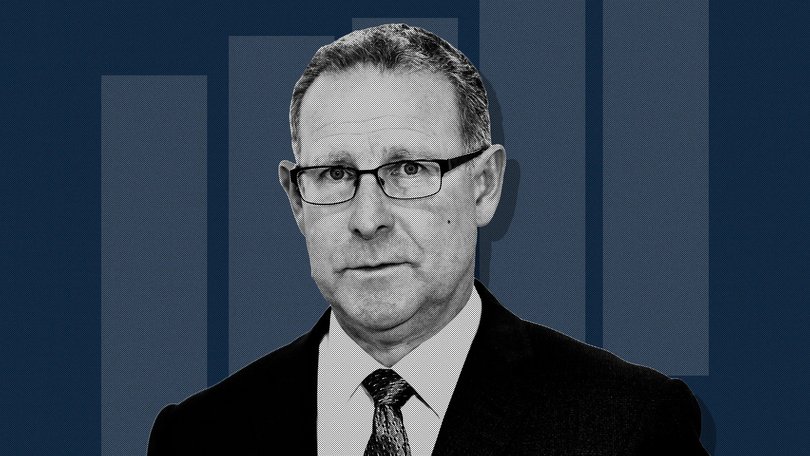Reform roundtable countdown: Business leader calls for flexible thinking as government finalises agenda
A top business leader has called for unions to be more flexible and not take positions that are simplistic and not constructive at next month’s economic roundtable.

A top business leader has called for unions to be more flexible and avoid positions that are simplistic and not constructive at next month’s economic roundtable.
The call from Australian Chamber of Commerce and Industry head Andrew McKellar echoes Treasurer Jim Chalmers, who has said he wants everyone to approach the roundtable with an open mind, although he doesn’t mind people being blunt and upfront with their views.
It comes amid a slew of pre-roundtable discussions hosted by ministers to feed ideas into the main event being held on August 19-21.
Sign up to The Nightly's newsletters.
Get the first look at the digital newspaper, curated daily stories and breaking headlines delivered to your inbox.
By continuing you agree to our Terms and Privacy Policy.Dr Chalmers is preparing to issue a final round of invitations aimed at getting experts in specific areas, such as tax reform, in for one of the three days of talks.
He’s already invited 22 representatives of unions, business groups, the tech and banking sectors, and senior officials from Government bodies as the “core” attendees at the summit.
Mr McKellar said he was willing to take the Government’s intentions for reform at face value.
But he cautioned that contributions like that of the Australian Council of Trade Unions — which last week blamed poor managers for sluggish productivity — were simplistic and not constructive.
“The risk is that there will be a tendency to approach the agenda from … fixed starting points. I think we’ve got to try and break that down,” he told The West.
“Obviously, we were concerned with the sort of characterisation that the ACTU put forward last week, which I think was, was not in the spirit that we would expect.
“We do expect something more constructive than simply, you know, a critique that productivity ills are due to the failures of management.”
The nation’s peak union body released research last week showing that about two in five Australian workers reported feeling burnt out at work, and only about half thought there were enough staff in their workplace to get the job done.
ACTU secretary Sally McManus said, “Too many employers” had equated lifting productivity with pushing people to work harder for longer, leading to burnout.
Mr McKellar acknowledged that, naturally, everyone would bring different priorities, but was optimistic there would be sufficient expertise to help people find common ground.
“When you see all the commentary that is now coming in and the ideas that are out there in the broader dialogue that’s occurring in the lead up to the roundtable, then I think that’s helping to sift what some of those priorities should be,” he said.
Ministers are in the midst of running a series of consultations in their portfolios to also feed ideas into the reform roundtable.
Industry Minister Tim Ayres will talk to people in the innovation and tech space on Friday and hold a second discussion on minerals processing and smelting next week.
Housing Minister Clare O’Neil will host five roundtables next week, convening industry, innovators, unions, local government and State and Territory building, planning and housing ministers.
Energy Minister Chris Bowen intends to get the key players in his sector in a room together next week as well, while Health Minister Mark Butler will ask for ideas on how to lift productivity in health and social care — some of the toughest areas to lift on traditional economic measures — on August 13.
Resources Minister Madeleine King has held two sets of talks already with the sector and has more planned with unions and key stakeholders across Northern Australia.
An infrastructure discussion earlier in July focused on supply chains and freight movement, while ongoing consultation on environmental laws and approvals processes will feed into the productivity discussion.
Small Business Minister Anne Aly heard from business owners in a gathering at Parliament House last week.
“The top theme that regularly came up through the roundtable was the perennial issue of red tape,” she told The West.
“I look forward to continuing to work closely with the sector, and with my State and territory counterparts, to ensure small business is central in our thinking as we develop programs and policies that affect them.”
The Productivity Commission will release the interim versions reports on the “five pillars” for reform over the next fortnight, starting on Thursday, which it says will give the nation a blueprint for a switch to a “growth mindset”.
Reserve Bank governor Michele Bullock, Productivity Commissioner Danielle Wood and Treasury secretary Jenny Wilkinson will lead discussions on each of the three days, focusing on economic resilience, productivity, and budget sustainability, respectively.
Originally published on The West Australian

